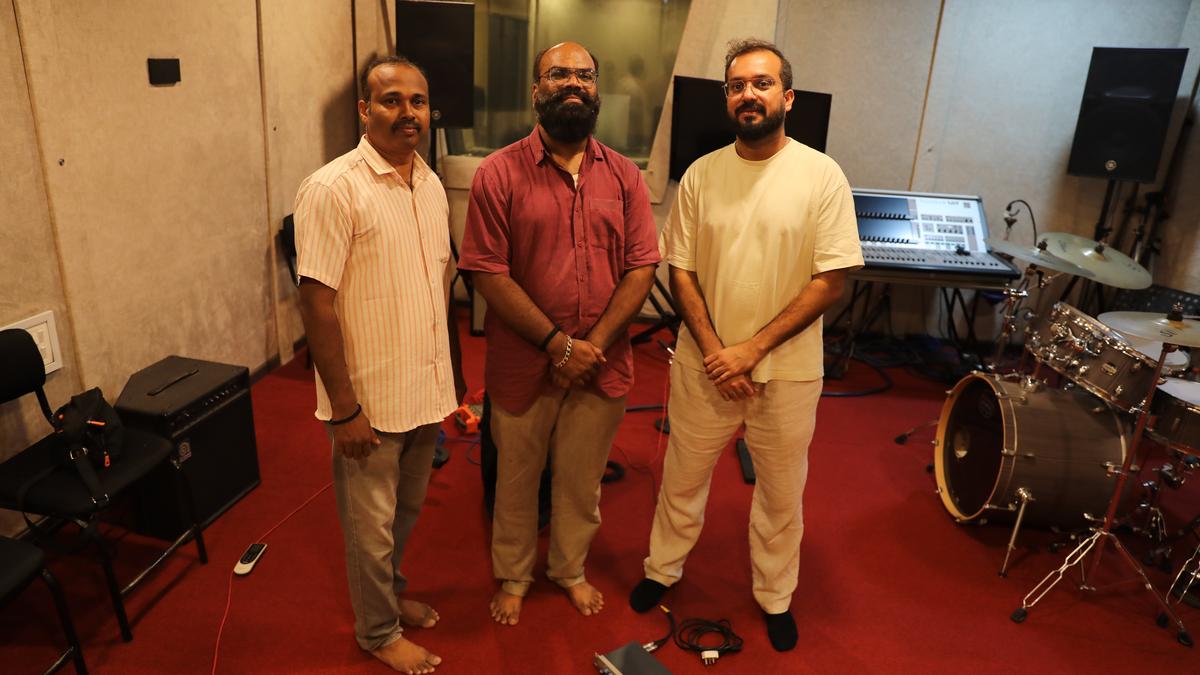By Neeraja Murthy
Copyright thehindu

Two celebrated musicians, Hamza Rahimtula and senior mridangamartiste R. Srikanth, join forces on their latest release, Mihai. The track fuses two distinct traditions: Hamza’s modern house music with Srikanth’s konnakkol (the vocal performance of percussion syllables) and mridangam, creating a sound both experimental and rooted.
Hamza, a Delhi-based artist with roots in Hyderabad, says he is excited by the collaboration: “We are breaking the rules here. Carnatic music has its own identity, but we’ve placed it in a different context.”
Carved a niche
South Asian DJ, producer and label head Hamza has built a reputation on balance. While his solo sets traverse different shades of house, his collaborations with Indian musicians adopt a distinct tempo. He describes Indo House as a new movement: “Indian sounds blending with house music is a genre that really took shape post-COVID. Indo Warehouse, a New York–based label, pioneered it. In India, Unnayanna (Bengaluru-based DJ Prashant Pallemoni), myself and a few others are carrying it forward.”
For his debut album ‘Origins’, released in April, Hamza collaborated with Rajasthan Folkstars. The fusion of Rajasthani folk and house music topped the global organic house charts, encouraging him to experiment further. Drawn to the “cosmic” tone of the mridangam, he first incorporated its notes from a sample library: “Electronic music is about taking people out of their headspace, away from their worries. The mridangam has that quality; it can transport you.”
Keen to hear it live, Hamza turned to his Wind Horse Records Studio engineer Karunakar, who connected him with Hyderabad-based artiste R. Srikanth. “It took him just a round or two to work it out, and the result was pure joy — that’s how the track Mihai was born,” Hamza recalls.
New experience
Senior mridangam artiste R. Srikanth describes the collaboration as a new experience, but adds: “Be it Western, Carnatic or Hindustani, the aspects of rhythm are the same. When a musician maintains the dynamics of the instrument, the sound becomes effective.” Over a six-hour session, Srikanth produced multiple samples with variations, which Hamza later edited and layered into patterns.
Determined to keep the track organic, Hamza explains: “Even listeners deeply immersed in different genres of house music should feel the sound fits naturally with the beat — not judge it, but say, ‘this is different, in a good way.’”
With two decades in music, Hamza admits he felt anxious during the process: “Musicians often have references in film music, but here we had none. It was new territory. That was daunting, but also exciting, knowing you’re doing something different, being one of the first to try it. When it comes together and people appreciate it, that’s motivating.”
Looking ahead, Hamza hopes to explore other classical instruments — morsing (percussion instrument similar to Jew’s harp used in Rajasthan and Carnatic music), violin, kanjira (percussion instrument native to sourthern Indian states) — as well as the music of Karnataka’s Siddi tribes and folk traditions from the Northeast, weaving them into house music.
Mihai, a blend of house and Carnatic music, is available on online and streaming apps



